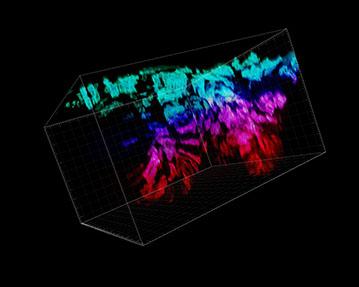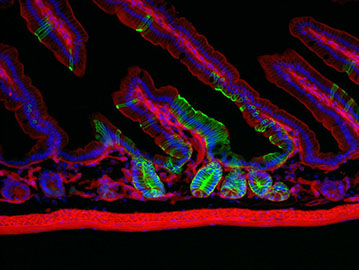Embryonic development is one of the most beautiful processes in nature. However, when developmental processes go awry, then birth defects, cancer and other diseases can result.

|
Craniofacial Development and RenewalA major focus of our lab is craniofacial and dental development and renewal. We study embryonic morphogenesis of the teeth and face, and we use the rodent incisor as a model system to understand adult stem cells. Unlike human teeth, the rodent incisor grows continuously throughout the life of the animal, and we analyze the molecular processes that regulate the behavior of these stem cells. We are also taking an evo-devo approach to learn how the stem cell populations in continuously renewing adult teeth have evolved. We intend to use the insights provided by our experiments in model organisms to guide us in the use of stem cells in regenerating craniofacial tissues. Finally, as craniofacial malformations are among the most common congenital abnormalities and have profound impacts on the lives of patients and their families, we are studying the genetic causes of these diseases in humans.
|
 |
Gastrointestinal RegenerationThe amazing ability of the mammalian gastrointestinal tract to renew has long fascinated biologists. Our research aims to address fundamental questions in this field, including the identity, regulation and plasticity of intestinal stem cells, as well as how these stem cells behave under conditions of damage and injury.
|

|
Progenitors in the Oral MucosaThe oral mucosa serves as a barrier to both physical and chemical insults from mastication, food, microorganisms, and other ingested substances. It is one of the most rapidly dividing tissues in the body and has remarkably efficient wound healing capacities. Relatively little is known about the oral epithelial stem cells and their regulation compared with other tissue systems. Our research aims to better characterize oral epithelial stem cells and their regulation, both in homeostasis and upon injury or insult. |